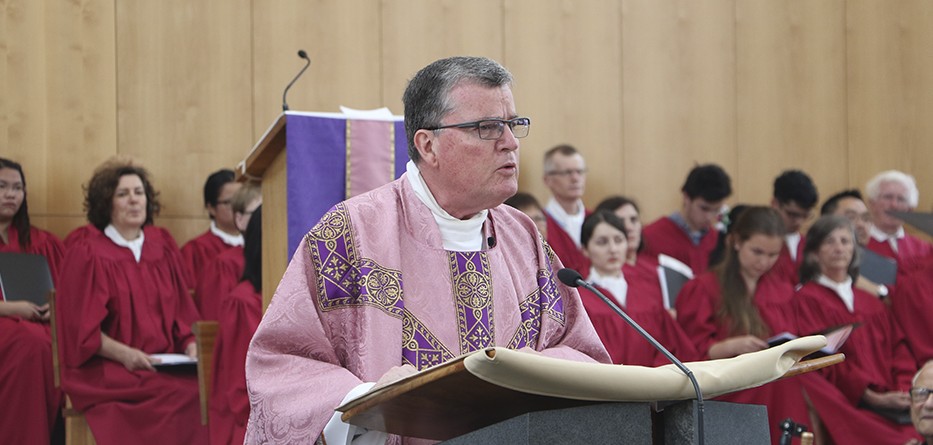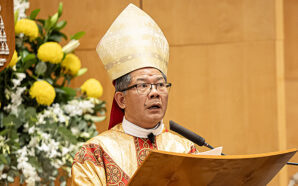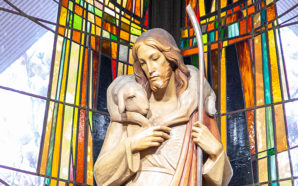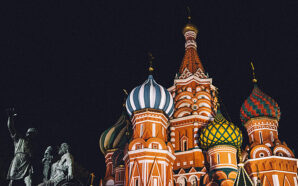Homily for the Third Week of Advent on the Occasion of the Opening of the Door for the Jubilee Year of Mercy
St Patrick’s Cathedral, Parramatta
13 December 2015
By Very Rev Peter G Williams
Diocesan Administrator – Diocese of Parramatta
Listen to the homily here
Last weekend I met up with one of my oldest friends who is a psychotherapist and in the course of our conversation he told me about a senior colleague who recently had revealed to him that he was in a state of despair over the submission of his thesis for a higher degree. In the course of his research he had used clinical notes from another colleague and whilst he had acknowledged the source in his endnotes he had scruples about whether there had been sufficient attribution.
This then led him on an inner journey of turmoil to the point where he contemplated ending his life.
He said to my friend – the sense of shame in possibly being exposed by the examiners he felt would not only ruin him professionally but the personal humiliation would make life not worth living. My friend spent a week trying to assist him in dealing with his dilemma. Here is a man, whose ‘bread and butter’ is counselling others, steeped in psychology and decades of professional experience who was incapable of dealing with his own plight. It reveals the extraordinary power of shame and the dislocation it can cause even in those whose training should theoretically equip them to resolve whatever their own personal malaise and move on. What is shame and why is it so destructive?
One writer has suggested: “As a self-conscious emotion, shame informs you of an internal state of inadequacy, unworthiness, dishonour, or regret about which others may or may not be aware. Shame can lead you to feel as though your whole self is flawed, bad, or subject to exclusion, it makes you want to withdraw or hide yourself. So it is no wonder that shame lurks behind addictions that seek to mask its impact.
Shame is often confused with guilt–an emotion you might experience as a result of a wrongdoing about which you might feel remorseful and wish to make amends. Where you will likely have an urge to admit guilt, or talk with others about a situation that left you with guilty feelings, it is much less likely that you will broadcast your shame. In fact, you’ll most likely conceal what you feel because shame does not make a distinction between an action and the self.”
View images from the event here
Shame has the capacity to paralyse and cripple human beings and linger for decades unresolved and hinder the potential for a life fully lived because shame has a visceral effect that convinces us that we can never be forgiven, never be acceptable to God, if others knew they would shun us and above we cannot be at ease with ourselves. In coming to terms with self, shame remains for almost everyone the “final frontier” to be conquered.
Today we have opened the Holy Door in this Cathedral to mark the beginning of the Year of Mercy. As Pope Francis today opens the Holy Door at the Cathedral of St John Lateran in Rome, so throughout the Catholic world similar doors are being opened in every Cathedral. In his General Audience last Tuesday when the Holy Door at St Peter’s was opened, he said the following:
“What does God like most?” Forgiving us and having mercy on us, so we’ll forgive our brothers and sisters, shining as torches of God’s mercy in the world! Then Francis recalled that Saint Ambrose, 4th century theologian and Bishop of Milan, noted that in Genesis, after creating things – sun, moon, animals – God just called them “good.” But after creating man and woman, God declared them “very good”! Saint Ambrose asked why “very good”? Ambrose figured that God called man and woman “very good,” because God now had the joy of having someone to forgive! “Beautiful, eh?” Francis chuckled. God’s joy is forgiving, Francis declared, God’s being is mercy.
So this year, Francis said, we must open our hearts so that God’s joy fills us all with this mercy, and pray every day: “Lord, I am a sinner, come with your mercy.” Dealing with the unresolved and buried shame and sin in our own lives is the beginning point of this Year of Mercy, but only a beginning. In the seventh century before Christ, Zephaniah in the midst of a calamitous situation in Jerusalem where false shrines had been constructed to compete with the God of Israel, in his prophecy he is able to express confidently: “Shout for joy!… rejoice exalt with all your heart… The Lord has repealed your sentence.”
God offers his love again, even though they people have strayed from the covenant. We note in the Gospel from Luke today that as John the Baptist continues his preaching that there is a practical outcome to the call to conversion. Acknowledgement of sin and the acceptance of God’s merciful love is more than just a comfortable moment for the repentant sinner. “What must we do?” they asked. Act with charity in your hearts, provide for the poor, don’t exploit others, don’t bully people or be antagonistic and be contented with what you have. John describes the baptism of Jesus as one of fire. What is that fire? It is the fire of God’s merciful love that burns away our inadequacy, assuages our guilt, rids us of shame and invites us to the life of joy in the service of Christ. As Paul writes to his favourite Church community at Philippi: “I want you to be happy… let your tolerance be evident to everyone: the Lord is very near.” The impact of opening our Holy Door today should not be lost on us and on those who will come here in the next year.
Doors are potent symbols. As a piece of practical construction doors keep people out and also conversely can lock people in. Our own hearts can also function like doors – we can block the love of God and others for us – and we lock up our own love for God and others. The Holy Door in this Cathedral today remains open as a symbol of God’s overwhelming love and unending mercy for all of us, no matter how inadequate or unworthy we might think we are. And this Jubilee Year of Mercy is not simply for those who are as some would say “within the tent.” Pope Francis has made it clear that those who have for whatever reason become estranged from the Church, the lapsed, the alienated, the rejects of society – this Year of Mercy is as much about them as it is about us! And we who knowingly are the recipients of God’s mercy must act as agents of mercy in our dealings with all whom we encounter in our day to day lives. As we now draw closer to the celebration of Christmas and the beginning of God’s great love story in the person of Jesus Christ let us today rejoice that at this altar and in this Eucharist we will find a tangible expression of that love in the communion we share with Christ and with one another, and demonstrably show that love by the manner in which we live.
Listen to the homily here
View images from the Opening of the Door for the Year of Mercy below









